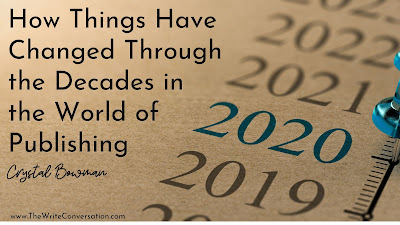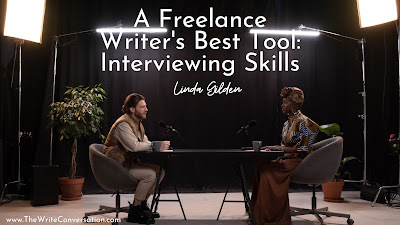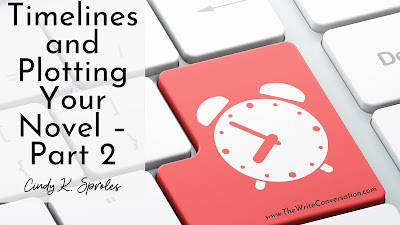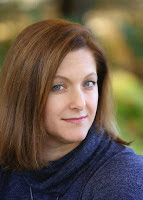Edie Melson's Blog, page 58
March 14, 2024
How Things Have Changed Through the Decades in the World of Publishing

by Crystal Bowman
My first book was published in 1993, so I’ve been in the publishing biz for more than thirty years. Things have changed a lot, so let’s take a trip down memory lane.
The writing process:I typed my first manuscript on an electric typewriter, then finally upgraded to a desk top computer and printer. I kept my documents on a floppy disk. In 1995 I bought a laptop the size of a small suitcase (and very heavy to carry through the airport). Since the internet was still fairly new (and some of us were afraid of it!) my research for writing stories or preparing proposals took place in bookstores and libraries.
The submission process:The Writer’s Market Guide provided submission guidelines, names of editors, and addresses for publishing houses. The books were expensive and became outdated quickly, so many writers used the copy at their local library. Proposals were submitted to a publisher through snail mail, which meant a trip to the post office to have it weighed and stamped. A self-addressed stamped envelope needed to be included if you wanted a response from the publisher. The good or bad news from the publisher arrived in your mailbox (in the self-addressed stamped envelope) four to six months later, or maybe never. Self-publishing was for writers who couldn’t land a publisher. Vanity Press was the condescending name given to publishing companies who would publish your book if you paid them a lot of money.
Marketing your book:Back in the day, publishers had a marketing team of sales reps who would travel to bookstores and meet with managers to promote new titles. The CBA (Christian Book Association) had a mega convention every summer. Christian publishing houses from all over the US and beyond would gather for a week of celebrating and promoting new book titles, music albums, church supplies, and gift products. The exhibit halls were so massive that you could not see everything in one day. Concerts and book signings by top artists and authors were the highlight of the convention as well as the inspiring Sunday evening worship service. Authors were not responsible for marketing their books. If they did some local speaking or had connections for book signings, publishers were happy. Platform was something people stood on while speaking or performing—also known as a stage.
Let’s fast forward to today.
The writing process:Clicking the keys on a keyboard allows writers to easily transport the words in their heads to their computer screens. Features like word count, spell check, Grammarly, and read aloud (my favorite) are helpful tools that enable writers to self-edit as they write. Documents are stored on your computer or an external hard drive. Information and research on any topic are instantly available with the click of a mouse. No more long nights at the library.
The submission process: Writer’s market guides are still helpful when trying to find a publisher, but submission guidelines are readily available on most publishers’ websites. Proposals are submitted via email rather than a trip to the post office.Independent publishing is a desirable option for writers who want to bypass the challenge of finding a traditional publisher or wait years for their books to come out. Since many indie publishers are producing bestselling, award-winning books, the stigma of “self-publishing” is gone.
Marketing your book:With fewer brick and mortar bookstores, sales reps are pretty much a thing of the past and authors are expected to aggressively market their books through social media sites like Face Book, Instagram, Twitter, etc. Launch teams, podcasts, blogs, email lists, and You Tube channels are other ways authors can market to a large audience. The Christian Product Expo (CPE) is smaller than the previous CBA convention, but is well attended by publishers, retailers, and authors. CPE offers book signing opportunities, radio interviews, and networking.The NRB International Christian Media Convention is the world’s largest gathering of Christian communicators and ministry professionals. NRB offers a variety of keynotes, and workshops as well as book signings and author interviews. Writers’ conferences help authors learn more about writing and publishing, but they are also a place where you can bring your hot-off-the press gem to share with others and possibly win an award.
In Conclusion
Things have changed a lot through the decades, and it’s important for writers to know what’s current. And whether you publish with a traditional publisher or one of the many professional indie publishers, our purpose remains the same: to use the gifts God has given us to inspire, encourage, and entertain others while bringing glory to God.
TWEETABLEHow Things Have Changed Through the Decades in the World of Publishing from author Crystal Bowman on @EdieMelson (Click to Tweet)
 Crystal Bowman is an award-winning, bestselling author of more than 100 books for children and families. She also writes lyrics for children’s piano music and is a monthly contributor to Clubhouse Jr. Magazine, Arise Daily, and Christian Children's Authors. She enjoys coaching children's writers as well as teaching at writers conferences. When she is not writing or speaking, she likes going for walks and spending time with her huggable grandkids. She and her husband live in Michigan and Florida and try to avoid snowstorms.
Crystal Bowman is an award-winning, bestselling author of more than 100 books for children and families. She also writes lyrics for children’s piano music and is a monthly contributor to Clubhouse Jr. Magazine, Arise Daily, and Christian Children's Authors. She enjoys coaching children's writers as well as teaching at writers conferences. When she is not writing or speaking, she likes going for walks and spending time with her huggable grandkids. She and her husband live in Michigan and Florida and try to avoid snowstorms.WWW.CRYSTALBOWMAN.COMWWW.FACEBOOK.COM/CRYSTAL.BOWMANWWW.FACEBOOK.COM/CRYSTALJBOWMANWWW.INSTAGRAM.COM/CRYSTALBOWMANAUTHOR
Published on March 14, 2024 22:00
March 13, 2024
Lucky Writer or Blessed Writer: The Adjective is Up to You

by Julie Lavender @JLavenderWrites
Four leaf clovers, lucky pennies, ladybugs, and horseshoes. How’s your luck holding out this month? Obviously for the believer, a successful writing journey requires no lucky symbols or tokens..
In fact, only one requirement—an abiding faith in the One who gives good gifts to His children—will lead the writer down the road to success. And keep in mind that success may look different on each writer’s journey, “for it is God who works in you to will and to act in order to fulfill his good purpose” (Philippians 2:13 NIV).
But just for fun this month, let’s take a look at some famous quotes about “luck,” and put a writerly spin on them. We’ll substitute “writing success” for the word “luck” in each phrase to help us ponder our part in doing the work along the path of God’s good purpose.“I say [writing success] is when an opportunity comes along and you’re prepared for it.” – Denzel Washington“[Writing success] is where opportunity meets preparation.” – Lucius Annaeus Seneca“I think the harder you work, the more [writing success] you have.” – Dave Thomas“[Writing success] marches with those who give their very best.” – H. Jackson Brown, Jr.“[Writing success] is not chance, it’s toil; fortune’s expensive smile is earned.” – Emily Dickinson“I’ve found that [writing success] is quite predictable. If you want more [writing success], take more chances. Be more active. Show up more often.” – Brian Tracy“The amount of good [writing success] coming your way depends on your willingness to act.” – Barbara Sher“The only sure thing about [writing success] is that it will change. – Bret Harte“[Writing success] is the by-product of busting your fanny.” – Don Sutton“I feel that [writing success] is preparation meeting opportunity.” – Oprah Winfrey
No matter how you spin it, our writing success depends on the Lord’s plans and purpose. Lean into Him, work hard, and enjoy His sweet blessings. Just for fun this month, look for “lucky” symbols. When you find a heads-up penny in the parking lot, a four-leaf clover in the front yard, a ladybug on the windowsill, or an upturned horseshoe “collecting luck,” thank God for His constant presence in your life and the many writing blessings He has gifted you over the months and years. Happy March, fellow writers!
Now it’s your turn. What “signs” or “symbols” help you remember to thank God for His blessings?
TWEETABLELucky Writer or Blessed Writer: The Adjective is Up to You from @JLavenderWrites on @EdieMelson (Click to Tweet)
 Julie Lavender is excited that her children’s books release this year. A children’s picture book with End Game Press and four educational children’s books co-authored with her husband release in the fall. She’s also excited about the release of two books since October: the bilingual edition of her award-winning, Amazon bestselling, Children’s Bible Stories for Bedtime and Strength for All Seasons: A Mom’s Devotional of Powerful Verses and Prayers.
Julie Lavender is excited that her children’s books release this year. A children’s picture book with End Game Press and four educational children’s books co-authored with her husband release in the fall. She’s also excited about the release of two books since October: the bilingual edition of her award-winning, Amazon bestselling, Children’s Bible Stories for Bedtime and Strength for All Seasons: A Mom’s Devotional of Powerful Verses and Prayers.
Published on March 13, 2024 22:00
March 12, 2024
A Freelance Writer's Best Tool: Interviewing Skills

by Linda Gilden @LindaGilden
One of the greatest tools we have as article writers is the interview. You do not necessarily have to do an hour-long interview to receive great benefit to your articles. Quotes from individuals strengthen your point and let your readers know that even if you are not an expert on the subject you know people who are well-versed and you work hard to make the connection.
Here are several reasons the interview helps the article writer make articles stronger.The opinion of someone else validates your subject and adds value to the material. Interviewing someone who is knowledgeable in your subject broadens the scope of your reach and helps more people to personally identify with your subject.An expert brings extra meaning to your article and gives credibility to your subject. Evenif your article is not an academic one, having a quote from an expert let’s the reader know that there is deeper knowledge to be had if they want to pursue it.Quotes show how your subject can be applied to daily life. If you are writing an article on depression, yet you have never experienced depression, having a quote or a sidebar from someone who has gone through depression will bring the human element into your writing. Likewise, if you are writing on running marathons and have never run one, seek out a marathon runner who can not only read your article and verify key elements, but he or she can also provide firsthand experience to illustrate your points.Often when you interview someone for a quote to go in an article, you find an aspect of the subject that you didn’t even think to include. So, talking to others helps you strengthen your outline and not leave out important parts.Those you include in your article will help spread the word about your writing.
Even if you only contact someone for a quote, remember your manners and be respectful of their time. Be sure to write a thank you note. Send them a copy of the published article and let them know where they can get copies or find it online.
If there are parts of your conversation you aren’t able to use for this article, file it away to use another time for a different article. Never throw anything away because you never know when you may have an opportunity to use it!
Every article you write will build your platform and increase your name recognition. Because articles are shorter than a book doesn’t mean they are less important. Every word you write will be valuable to some reader and make them want to learn more about your subject.
TWEETABLEA Freelance Writer's Best Tool: Interviewing Skills, tips from author @LindaGilden on @EdieMelson (Click to Tweet)
 Linda Gilden is an experienced, bestselling writer, speaker, award-winning editor, marketer, and speaking coach, ghostwriter, and writing coach. Author of 40 books and 2,000+ magazine articles, Linda appreciates a great story. She believes with our stories, we can change the world one word at a time and loves to encourage others to do that through writing coaching and personal tutoring. Her newest book was released in November: TRADING SHADOWS: EXCHANGING A LIFE OF SECRETS, FEAR, AND DOUBT FOR A LIFE OF FREEDOM WITH THE ALMIGHTY.
Linda Gilden is an experienced, bestselling writer, speaker, award-winning editor, marketer, and speaking coach, ghostwriter, and writing coach. Author of 40 books and 2,000+ magazine articles, Linda appreciates a great story. She believes with our stories, we can change the world one word at a time and loves to encourage others to do that through writing coaching and personal tutoring. Her newest book was released in November: TRADING SHADOWS: EXCHANGING A LIFE OF SECRETS, FEAR, AND DOUBT FOR A LIFE OF FREEDOM WITH THE ALMIGHTY.
Published on March 12, 2024 22:00
March 11, 2024
Timelines and Plotting Your Novel – Part 2

by Cindy K. Sproles @CindyDevoted
Last month, we talked about creating a timeline for your novel. We discussed the questions and items you needed to keep your story on track. Today, we want to continue to help you see the value of developing a solid timeline and how it can help get rid of unnecessary information.
Let me begin by saying that the time span of your novel has nothing to do with the word count. We could write a character’s lifetime in a paragraph. So, remember, your timeline could serve as only one day in the life of your character. That’s fine if all the incidents that happen in the story fit into that day, and you don’t slip up and make something happen the next day. The timeframe of your story is up to you, but the job you have is to make sure everything ties together nicely and no holes form.
The timeline of your story should only have events that are important to the plot. Those rabbit trails we take need to have an important reason for being there. They should be a step forward in the story, not a step backward. Remember, your story should always move forward. If you find yourself stuck in one space of time, tied up in a backstory, the novel comes to a screeching halt, and your reader will grow frustrated. One of the most important questions I learned to ask came from an agent. He said, learn to ask the question, does the reader really care? It’s a harsh question because writers want readers to know every tiny detail. The truth is, when these long backstory sequences enter, the reader doesn’t care. They are caught up in the moment and want to move ahead, not backward.
Having said that, don’t start your story out on the day your character was born. That is, not unless it is really valuable to your story. You’re writing a novel, not a biography, and remember, the question, does the reader really care? So, unless little Tommy was dropped off as an infant on a doorstep and it affects his long-term well-being, it’s probably not going to be something your reader cares about. Just start where Tommy is now.
Timelines will help us remove the pesky backstory. By that token, it becomes a valuable tool in our editing process. The timeline will help you decide how much, if any, backstory is necessary at the beginning of your story. You’ve heard it said that backstory is best dropped in as small tidbits throughout the story. This can truly enhance your work-in-progress because tidbits bring clarity. We don’t need the whole historical account. Part of the fun of reading is being able to use our imagination to fill in the gaps. Don’t take that joy from your reader. Use backstory carefully and strategically.
Backstory can be used as a tool to develop your character. It is things you can use to help you craft why a character is the way they are. Listing these life incidents on a separate sheet of paper is wonderful to help you remember a why or how about a character.
In our first post we briefly noted a question we want a reader to ask at the beginning of every story we write. It’s in the hook we develop. I believe your hook should be in the first paragraph of your story and no further down than the end of the first page. You want your opening paragraph to be so tantalizing that your reader is jolted to ask, “What on earth is going on here?” When a reader has to ask that question, you have piqued the deepest part of their curiosity, and they will read on. They will turn the page and not be able to lay the book down because they must have the answer to that question. Start your timeline, your story, at a moment of crisis, or the reason for your story to begin.
Continue to add angst, action, and problems to your timeline. Perhaps it was a past incident that has come back to haunt our protagonist. Drop it in on the timeline and allow it to move your story forward, being cautious to keep dates and incidents correct in the line. Does it really take hours to move a character three blocks? You must watch for these things and craft them to fit or remove them. How we move our character through time makes reading smooth and seamless. You don’t want your reader to stop mid-stream and flip backward in the story to try and resolve something they thought they missed. Always tie everything together so the read is seamless. The development of those scenes is vital and can make or break your story.
Finally, when you end the story, has your protagonist hit their mark? Did you accomplish what you wanted for this character? Does every incident you wrote tie well into the character, and does it move the story forward? Are the timeframes correct, ages, and incidents all there?
A timeline is more than just dates. It’s the link that holds the rope that threads all through your story. When we reach the end, we should be able to pull that rope, and it gathers into a nice ruffle on a dress. Your timeline will help you edit by showing you repetitive scenes or unnecessary backstory. As you write your story, take time to list the incidents on a separate page. It will be valuable when you begin to write a synopsis for your proposal and will help sharpen and tighten your story.
TWEETABLETimelines and Plotting Your Novel - Part 2 from @CindyDevoted on @EdieMelson (Click to Tweet)
Don't Miss the Other Post in This Series! Timelines and Plotting Your Novel - Part 1 Timelines and Plotting Your Novel - Part 2
 Cindy K. Sproles is an author, speaker, and conference teacher. Having served for a number of years as a managing editor for Lighthouse Publishing of the Carolinas and Ironstream Media, Cindy now works as a mentor, coach, and freelance editor. She is the co-founder of Writing Right Author Mentoring Services with Lori Marett and she is the director of the Asheville Christian Writers Conference. Cindy is also the co-founder of Christian Devotions Ministries and WWW.CHRISTIANDEVOTIONS.US, as well as WWW.INSPIREAFIRE.COM. Her devotions are in newspapers and magazines nationwide, and her novels have become award-winning best-selling works. She is a popular speaker at conferences and a natural encourager. Cindy is a mountain girl, born and raised in the Appalachian mountains, where she and her husband still reside. She has raised four sons and now resorts to raising chickens where the pecking order is easier to manage. You can visit Cindy at WWW.CINDYSPROLES.COM or www.wramsforwriters.com.
Cindy K. Sproles is an author, speaker, and conference teacher. Having served for a number of years as a managing editor for Lighthouse Publishing of the Carolinas and Ironstream Media, Cindy now works as a mentor, coach, and freelance editor. She is the co-founder of Writing Right Author Mentoring Services with Lori Marett and she is the director of the Asheville Christian Writers Conference. Cindy is also the co-founder of Christian Devotions Ministries and WWW.CHRISTIANDEVOTIONS.US, as well as WWW.INSPIREAFIRE.COM. Her devotions are in newspapers and magazines nationwide, and her novels have become award-winning best-selling works. She is a popular speaker at conferences and a natural encourager. Cindy is a mountain girl, born and raised in the Appalachian mountains, where she and her husband still reside. She has raised four sons and now resorts to raising chickens where the pecking order is easier to manage. You can visit Cindy at WWW.CINDYSPROLES.COM or www.wramsforwriters.com.
Published on March 11, 2024 22:00
March 10, 2024
Be Equipped to Combat Writing Discouragement

by Larry J. Leech II @LarryJLeechII
Conference season is underway, and if you have attended a conference already or plan to soon, I’m sure the enemy has been whispering in your ear.
Oh, he’s a tricky one who likes to say things like “You shouldn’t waste your money on a conference.” Or “Your idea or story is stupid, and no acquisition editor or agent will want it.” Or “You’re an idiot if you think you have what it takes to be a writer.”
Well, you know what? Those are ALL lies. Flat-out lies.
If the Holy Spirit put a story or idea on your heart to write, He’s done so for a reason. Your job is to be obedient and write it. In the meantime, though, the nasty little snake who has slithered around on the earth for centuries will do all he can to deter you.
Don’t. Let. Him.
Dealing with discouragement is part of the writing life. And in life in general. During my days as a goalie coach, I told my goalies nearly every day, “Everyone experiences adversity. It is how you handle the adversity that defines you as a person.” I made them memorize that quote.
As a goalie, one must be mentally tough. If you’re not, one bad goal quickly leads to another and then another. I wanted the goalies to know and understand that stuff happens.
Bad stuff sometimes. And they had to push through it if they wanted to enjoy success. Mental toughness is a key to playing that position. And is as well for writers.
Those familiar with twelve-step recovery programs know the first three steps set up a recovering addict for success:
Step One: “Admit that our life has become unmanageable.” [paraphrased]Step Two: “Came to believe that a Power greater than ourselves could restore us to sanity.”Step Three: “Made a decision to turn our will and our lives over to the care of God as we understood Him.”
I think those principles can help anyone deal with discouragement. Wrestling with the enemy can be as easy or as difficult as we make it. If we allow him, he will instill invasive thoughts and imaginary arguments into our minds. When we sink into that spin cycle of despair, we need help to dig or snap out of it.
Turning our focus onto God in whatever way works best for you—reading The Word, prayer, conversation with a friend—ignites the following:
1. Instant encouragement and a new perspective. Big God, Little problem. 2. Feeds our faith and starves our fear. When our mind is on God, all the things that we do feeds our faith. 3. Changes the way you talk. Think positive thoughts, speak positive thoughts.
Abraham Lincoln may have said it best when he wrote to a friend in 1862: “Adhere to your purpose and you will soon feel as well as you ever did. On the contrary, if you falter, and give up, you will lose the power of keeping any resolution, and will regret it all your life.”
TWEETABLEBe Equipped to Combat Writing Discouragement from @LarryJLeechII on @EdieMelson (Click to Tweet)
 Editor-in-Chief at Bold Vision Books and writing coach of award-winning authors, Larry J. Leech II has spent more than forty years writing and editing. He started his career as a sportswriter in southwestern Pennsylvania where he covered prep, college, and pro sports, including the Pittsburgh Pirates and Steelers.
Editor-in-Chief at Bold Vision Books and writing coach of award-winning authors, Larry J. Leech II has spent more than forty years writing and editing. He started his career as a sportswriter in southwestern Pennsylvania where he covered prep, college, and pro sports, including the Pittsburgh Pirates and Steelers. In 2004, after 2,300 published articles, Larry moved into the book publishing industry. Since that time, he has ghostwritten 30 books, edited more than 400 manuscripts, and coached hundreds of authors through the writing and publication process. You can find him online on Twitter, Facebook, and Instagram.
Published on March 10, 2024 22:00
March 9, 2024
Finding Your Writer Identity

by Martin Wiles @LinesFromGod
“Whom are you mimicking?”
All day, I heard the question. Spirit week. Not my favorite part of the school year, but the kids love it, and I try to participate in at least one of the themes. One that I chose entailed dressing like one of the students.
Since spirit week falls in the middle of winter—and since I do not enjoy dressing up—I selected a student who wears stuff I enjoy. In this case, a stretch hat, which keeps my bald head warm. So, on that particular day, I wore a hat all day—something we typically can’t do. And I made this student’s day because he was proud I chose to mimic him.
But I didn’t get the question on just one day. Later in the week, students—or teachers and students—chose to switch and dress like each other. Earlier in the week, another student had suggested he and I make the switch. Another student who enjoyed dressing sloppily. And yet another winner for me because he typically wore sleep pants and a hoodie. Again, right up my alley.
Paul was also a mimicker—but of Christ. “And you should imitate me, just as I imitate Christ” (1 Corinthians 11:1 NLT).
The first part of the verse might sound as if Paul boasted—imitate me—but he wasn’t. He quickly clarifies this by telling us he imitates Christ.
Paul was a little Jesus. As God’s Spirit directed, Paul traveled over the known world doing good for others and introducing them to Christ and what he had done on Calvary’s cross. Paul did what Jesus wants all his followers to do: mimic Him.
In the spiritual realm, imitating Christ is honorable. But in the writing world, mimicking other writers isn’t. Sure, we can learn from other writers who are more accomplished than we are, but we shouldn’t write like them. God created only one Max Lucado, William Shakespeare, John Steinbeck, Edie Melson, Cindy Sproles, Lori Hatcher, Eva Everson—and Martin Wiles.
As an English teacher, I quickly learn the voice of my students by reading their writing. Yes, all of us can improve our craft by attending writing conferences, joining mentoring groups, and reading books on writing, but none of us should mimic other writers.
Our job as writers is to find our voice and use it in the ways God provides. Just as He doesn’t give us all identical opportunities, He also doesn’t give us the same voice. Not everyone will write a book. Some will use their voice to write articles, Sunday school lessons, devotions, and blog posts. And some who do write books will see their books reach astounding sales, while others may sell only a few thousand.
As a teacher, I have watched hundreds of students find their identity through a name on a water bottle, a pair of shoes, a hoodie, a baseball or softball bat, or their smartphone. The list is endless. But the students I admire most don’t find their identity in any of those things. I love the students who wear what they want and don’t care what their peers think. They know who they are and don’t need their peers to tell them.
Through our practice, God will reveal our writer's voice—and, with it, our identity. Jenny once asked Forrest Gump who he wanted to be when he grew up. He said, “Aren’t I gonna be me?”
More than anything else, our identity is connected to our connection with Christ. Our writing is an extension of how we share His love through our writing. And each of us has a unique voice to do that. Find yours.
TWEETABLEFinding Your Writer Identity, insight from Martin Wiles (@LinesFromGod) on @EdieMelson (Click to Tweet)
 Martin Wiles is the founder of Love Lines from God (WWW.LOVELINESFROMGOD.COM) and serves as Managing Editor for Christian Devotions and Directing Editor for VineWords. He has authored six books and has been published in numerous publications. His most recent book, DON'T JUST LIVE...REALLY LIVE, debuted in October of 2021. He is a freelance editor, English teacher, author, and pastor.
Martin Wiles is the founder of Love Lines from God (WWW.LOVELINESFROMGOD.COM) and serves as Managing Editor for Christian Devotions and Directing Editor for VineWords. He has authored six books and has been published in numerous publications. His most recent book, DON'T JUST LIVE...REALLY LIVE, debuted in October of 2021. He is a freelance editor, English teacher, author, and pastor.
Published on March 09, 2024 22:00
March 8, 2024
How Can Writers Take Better Care of Themselves?

by Beth K. Vogt @BethVogt
Anyone else surprised that it’s March, and that Daylight Savings Time happens tomorrow? (You’re welcome for the reminder!)
We’ve had nine weeks to work on our 2024 resolutions or to focus on our One Word for the year. Today, I want to pause for a moment and encourage you to—what else?—take care of yourself.
Amid all our busyness, we can overlook ourselves. We have so much to do that we just shove ourselves to the backburner. We get used to being ignored.
How can you take better care of yourself? Consider these four areas of health: mental, emotional, physical, and spiritual.
Mental: Plan things to look forward to. If you’re facing stressful times—Anyone on deadline?—it helps to have something good to anticipate. It can be something small, like relaxing with with a cup of tea, or something more adventurous, like hiking with friends. Go ahead, plan something fun!Practice kindness. Helping someone else encourages them and it lifts your heart too. Being kind creates a sense of connection with others, whether it’s just smiling at someone else or volunteering at a food bank. This also breaks down the sense of isolation we introverted writers sometimes struggle with.
Emotional:Establish a healthy support system. As writers, we know our imaginary characters need community. Sometimes we forget that we do too. Who do you turn to when you’re frustrated or when you’re doubting yourself?Practice gratitude. We’ve all heard about the value of being thankful and how gratefulness helps refocus our emotions. The last two years have been difficult ones for me. One thing I do is write out 1 Thessalonians 5:16-18 (NASB) every morning to anchor my heart to gratitude: Rejoice always, pray without ceasing, in everything give thanks; for this is the will of God for you in Christ Jesus.
Physical: Schedule—and keep!—your annual medical appointments. I know, this doesn’t sound fun. But again, you are important and taking care of your health means seeing your dentist, optometrist, and doctor and, yes, enduring those sometimes-uncomfortable exams.Exercise regularly. It’s so easy to exercise, what with online classes, at-home equipment, and gyms. The problem? Getting up out of your chair and doing it! Accountability helps—my husband and I lift weights at home. Knowing he’s waiting for me at 6 a.m. gets me out of bed in the morning.
Spiritual: Journal your prayers. I’ve begun writing in a prayer journal again, and I love how this discipline focuses my heart. After writing out my prayer, any burden I was carrying is lifted in a tangible way.Write out Scripture verses. In Deuteronomy 17:18, God says the king is to write out the Law that was given to the priests. There’s something powerful about writing Bible verses or passages. Doing so slows us down, helps us draw closer to God, and see the Word in fresh way.
What do you need to do to take better care of yourself? Did one of these suggestions appeal to you? Do you have a suggestion to share?
TWEETABLEHow Can Writers Take Better Care of Themselves? insight from @BethVogt on @EdieMelson (Click to tweet)
 Beth K. Vogt believes God’s best often waits behind the doors marked “Never.” She’s authored 15 novels and novellas, both contemporary romance and women’s fiction. Beth is a Christy Award winner, an ACFW Carol Award winner, and a RITA® finalist. Her newest contemporary romance novel, Dedicated to the One I Love, released June 20, 2023. Her novel Things I Never Told You, book one in her Thatcher Sisters Series by Tyndale House Publishers, won the 2019 AWSA Golden Scroll Award for Contemporary Novel of the Year. An established magazine writer and former editor of the leadership magazine for MOPS International, Beth blogs for Learn How to Write a Novel and The Write Conversation and also enjoys speaking to writers group and mentoring other writers. She lives in Colorado with her husband Rob, who has adjusted to discussing the lives of imaginary people. Connect with Beth at bethvogt.com.
Beth K. Vogt believes God’s best often waits behind the doors marked “Never.” She’s authored 15 novels and novellas, both contemporary romance and women’s fiction. Beth is a Christy Award winner, an ACFW Carol Award winner, and a RITA® finalist. Her newest contemporary romance novel, Dedicated to the One I Love, released June 20, 2023. Her novel Things I Never Told You, book one in her Thatcher Sisters Series by Tyndale House Publishers, won the 2019 AWSA Golden Scroll Award for Contemporary Novel of the Year. An established magazine writer and former editor of the leadership magazine for MOPS International, Beth blogs for Learn How to Write a Novel and The Write Conversation and also enjoys speaking to writers group and mentoring other writers. She lives in Colorado with her husband Rob, who has adjusted to discussing the lives of imaginary people. Connect with Beth at bethvogt.com.
Published on March 08, 2024 22:00
March 7, 2024
Writers Conference 1102: Eight Things to Do after the Conference

by Lilka Raphael @LilkaRaphael
Writers conferences always stoke my passion for writing. However, the information overload makes my head spin. Consequently, I have learned to do a few things that enhance the experience once I return home.
Here are my top tips for what to do once the conference is over.
1. Write it down. Take notes on your notes. Get all those ideas and what ifs documented before they dissipate. Outline your next steps. Do you need to restructure, add, or delete? Should you divide your work into two or more projects? Did you receive any suggestions that will make your work timely or relevant?
2. Calm down. Take time to relax so that your thoughts can settle. A writing career takes time. And more time. Do not pressure yourself to do everything you learned immediately. An agent that requested a follow up rarely expects a manuscript the next day. Gather your thoughts and develop a systematic plan of action that is reasonable. What resources do you need to acquire? Prioritize the suggestions you want to implement. Still, do not allow the euphoria of the conference to generate unrealistic expectations for yourself.
3. Revise your social media. Conferences can provide great updates on the latest media trends. We want to leave a great impression when the people we have met visit our sites. If our content is dated, visitors may quickly lose interest. Even a quick post regarding the conference can provide great content.
4. Refine your work. I receive thoughtful, targeted advice when I attend conferences. A simple suggestion can be profound. Some of the best advice I received was to change a title. As a pharmacist, the term therapy is common for me. However, I learned that it could upset others who are not in healthcare. A quick change made the title more appealing to a broader audience. The investment to attend a conference is lost when we do not implement what we learn.
5. Follow up. I have sat in more classes than I can count and listened to faculty voice frustration over writers who never submitted as requested. I have also excitedly returned home only to stare at a keyboard terrified to forward my work. However, a failure to follow up defeats the point of attending. Conferences provide direct interaction with the best in the business. Do not allow fear to squander an opportunity. An agent’s lack of interest does not mean that your manuscript is terrible. Business decisions do not always reflect the quality of your work.
6. Register for another conference. This isn’t always possible, but if you can swing it, I highly recommend it. The more conferences you attend, the better you become at making the investment pay off. You become savvy regarding the professionals to approach and what classes best suit you. I suggest attending a large conference with a variety of informative resources in addition to a smaller one that may allow more time for networking. Attending multiple conferences may also allow you to follow up with professionals you have met previously. Conferences in different geographic regions will allow you to meet professionals who can provide alternate viewpoints on your work. I attend conferences with a dear friend. Not only is this enjoyable, but it also minimizes our expenses.
7. Keep writing. Do not allow disappointment or the intricacies of publishing to dissuade you from pursuing your passion. None of the effort you invest will bear fruit if you do not keep at it. The more you write, the better you become. Like any art or profession, it requires discipline to become proficient.
8. Finally, keep the faith. Rejection is not the end. There are more bestsellers than I can list that were rejected by agents and publishers. Success is the offspring of failure, and failure is relative. Do not view rejection as an end but rather a not now. We are eager to bloom but not always ready to do so.
God gives us talents to share with others. It may take longer than we imagine, but our words will reach their audience at the appointed time. We write to inspire, encourage, comfort, and entertain. Write amidst frustration. Our words matter. It is up to us to distribute them wisely.
Pleasant words are as an honeycomb, sweet to the soul, and health to the bones. Proverbs 16:24 KJV
TWEETABLEWriters Conference 1102: Eight Things to Do after the Conference from @Lilka_Raphael on @EdieMelson (Click to Tweet)
 A Florida native, Lilka Finley Raphael has been a licensed pharmacist for over thirty years. Her passions for writing, gardening, and photography prompted her to share her experiences and life lessons on her blogs B Is for Blessed and God, autism, & me. You can learn more about her at lilkaraphael.com
A Florida native, Lilka Finley Raphael has been a licensed pharmacist for over thirty years. Her passions for writing, gardening, and photography prompted her to share her experiences and life lessons on her blogs B Is for Blessed and God, autism, & me. You can learn more about her at lilkaraphael.comLilka’s greatest achievements are her two adult sons who have flown the nest. Happily married for thirty-two years, she lives east of Atlanta with her husband, Rod. They now share their home with two German Shepherds—Holly and Ivy—and one naughty kitty, Moxie.
Published on March 07, 2024 22:00
March 6, 2024
Low Bar/High Bar Goal Setting for Writers

by Lynn H. Blackburn @LynnHBlackburn
Happy March!
As you read these words, I’m fresh off a deadline, which means I’m simultaneously relieved and terrified, and I’m more than a little punchy. Which is why I’m leaning hard into the goals I set at the beginning of the year that included a low bar/high bar option.
I mentioned this concept back in my January post. I heard about it from a Bullet Journal creator I follow on YouTube, JashiiCorren and while it wasn’t an entirely new concept to me, this was the first time it really resonated with me.
I’ve always been someone who has had very high expectations for myself and for a long time, I was generally successful at meeting my goals.
But then … well … life happened. I grew up. I had got married, had kids, and now I’m coming up hard on 50 and the number of balls I have to keep in the air would make even the most talented juggler cry for mercy!
Part of me has accepted that I can’t do it all. That some balls will be dropped. And there are seasons when my time management strategy revolves around a complicated triage system where I keep the balls in the air that absolutely must stay up and allow the others to fall where they may until I have time to get them moving again. (I call this the “what will break/what will bounce” method - if it can bounce, I can drop it.)
The overachiever, responsible, disciplined side of my brain balks at this willy-nilly approach to meeting my self-imposed goals and it says nasty things to me when I can’t live up to my own expectations. Note: I’m not implying that any of this is rational or reasonable. But it is how my brain works, so I’ve had to figure out how to work with it.
I wanted to make goals! I wanted to achieve! I wanted to check off boxes on a list to prove that I was making progress! But days and weeks of failure to live up to my own (admittedly ridiculous) expectations caused no end of frustration!
Until I came across the low bar/high bar method, I didn’t have a good way to formulate a strategy that would give me the grace I need to manage wildly varying days while keeping the super conscientious part of myself satisfied that progress was being made.
The low bar/high bar idea is fairly straight forward. When you set a goal, you choose a low bar and a high bar. Using writing as an example, you might want to write every day this year. So your high bar is 366 days! (It’s a leap year!) But realistically, you know life will happen. So you also set a low bar. Maybe the low bar could be to write 150 days of the year.
You can decide if you want the high bar to be a stretch and the low bar to be easy, or if you want the high bar to be what you expect to do daily and the low bar to be what happens when life roughs you up. You get to choose where the bar is!
Fair warning: Depending on your wiring and mentality, this may turn out to be more challenging than you might think it would be. I grew up hearing the saying, “I’d rather aim for the stars and hit a stump than aim for a stump and blow my toe off.” I didn’t realize just how much I’d internalized this nugget of wisdom until I seriously considered …. well …. aiming for a stump! Everything in me rebelled! Why bother setting a minuscule goal? What’s the point?
But wow is it satisfying to be able to say, “I’m meeting my goals.” And there’s a lot of evidence that meeting tiny goals gives us the discipline to meet larger goals. (Read Atomic Habits for more on this!)
In my case, I couldn’t quite bring myself to set a low bar for everything. So at the beginning of 2024, I chose a combination of “regular” goals and low bar/high bar goal. Some of my regular goals feel low enough that I didn’t think I needed an even lower bar! And some of the tougher goals are important enough that I didn’t want to shortchange myself by being okay with something less.
But y’all, when I did set a low bar, wow. It was freeing. Some of my low bar goals are so low, the only way I could fail to meet them would be to completely forget about them. And that, as it turns out, is the whole point. I can get so busy trying to meet the “shoot for the stars” goals that I eventually give up entirely on the smaller goals. But those goals are important to! I really do want to read more books on writing craft, and I do want to develop a few more classes that I can teach. By giving myself a low bar to shoot for, I’m more likely to keep the less urgent but still important goals in mind … and make real progress toward them.
Would you consider setting low bar/high bar goals? What kind of goals do you think would work well for this method?
If your New Year’s Resolutions have already crashed and burned, it’s not too late to have a productive year. Revisit them. Set a low bar/high bar and give them another go.
And a quick reminder: Your worth is not in your achievements or the items you’ve checked off a list. You are an image bearer of the One True God. You are beloved. If lists and goals condemn you, then I’d like to lovingly encourage you to ignore everything I just said and lean hard into keeping your focus on finding your peace in the arms of the One who loved you first and still loves you best.
Grace and peace,Lynn
TWEETABLELow Bar/High Bar Goal Setting for Writers from author @LynnHBlackburn on @EdieMelson (Click to Tweet)
Don't Miss the Rest of Lynn's Posts on Goal Setting! January: Meet Your Writing Goals This Year with These Valuable Tips
February: Tips to Divide Up Your Writing Time Into Valuable Chunks March: Low Bar/High Bar Goal Setting for Writers
 Lynn H. Blackburn is the award-winning author of Unknown Threat, Malicious Intent, and Under Fire, as well as the Dive Team Investigations series. She loves writing swoon-worthy southern suspense because her childhood fantasy was to become a spy, but her grown-up reality is that she's a huge chicken and would have been caught on her first mission. She prefers to live vicariously through her characters by putting them into terrifying situations while she's sitting at home in her pajamas! She lives in Simpsonville, South Carolina, with her true love, Brian, and their three children. Learn more at www.lynnhblackburn.com.
Lynn H. Blackburn is the award-winning author of Unknown Threat, Malicious Intent, and Under Fire, as well as the Dive Team Investigations series. She loves writing swoon-worthy southern suspense because her childhood fantasy was to become a spy, but her grown-up reality is that she's a huge chicken and would have been caught on her first mission. She prefers to live vicariously through her characters by putting them into terrifying situations while she's sitting at home in her pajamas! She lives in Simpsonville, South Carolina, with her true love, Brian, and their three children. Learn more at www.lynnhblackburn.com.
Published on March 06, 2024 22:00
March 5, 2024
The Spiral of Creativity

by Sarah Sally Hamer @SarahSallyHamer
Creativity is NOT a straight line. Most of us have been taught to think in a linear fashion, where one thought follows another in an orderly and specific way. But that's not how it works. Our brains are made up of trillions of cells, which all connect in varying ways. The connections are based on association, where each one hooks to something similar.
For instance, if I ask you to describe a banana, you would probably describe it as a curved yellow fruit, tubular in shape, sweet in flavor, soft in texture, and the perfect ingredient for a banana pudding. You might remember your mom cutting one up in your cereal or watching a monkey open it from the "flower" instead of the stem end. All of these things come from your experiences of a banana, and from interconnected brain neurons. I've listed the description in very specific details but, in our brain, those neurons may live in very different places.
The term "yellow" for instance isn't only about bananas. Millions of things are yellow, from the sun, to a sunflower, to butter, to a crayon, to clouds during a sunset. And each of the neurons that are connected to "banana" are also connected to the other items I've mentioned because they all fall into the category of yellow. It works that way with everything in our mind—things are connected by association.
That's why creativity is, well, creative. We all have neurons with unique connections in our brains to our own experiences. Therefore, we are accessing different ideas than anyone else. Of course, there are cultural similarities—I'm the middle child but the oldest girl out of five children so I have specific ideas about how families work that belong to me. Your experience will probably be different than mine, simply because you may be an only child, the oldest, or the youngest. And some areas of the world don't have yellow bananas. Or someone may never have even seen a banana. But all of our brains work in the same way.
So the questions become: How do you create? How does your brain work? Where do your ideas come from? Are you utilizing all of possibilities?
Do you ever get asked where you get ideas for your books? I do, all the time. But I can't really explain where those ideas come from, although I often try. I do believe writers work in a "spiral of creativity," where the interconnection of neurons in our brains allow us to see things from a different perspective than the rest of the world. Each of us has a perspective, of course, but writers can apply those perspectives to non-existent people, our characters, and to non-existent situations, our plots. And, stories appear, almost as if by magic. Of course, it's not really magic, it's a lifetime of building stories in our heads. Ideas flow, even if we're not paying attention.
Where do you think your ideas come from? Are they based on specific experiences in your life? Do you recognize yourself—and others—in your characters? I do. My "core" protagonist, whether she's in a contemporary story, somewhere in space, or long ago in time, is always the same because she's "me" at least to some extent. I do create monsters sometimes in my books but they still harbor a tiny piece of me somewhere. Because I don't have the ability to write about something I don't know.
What do you think? I'd love to hear where your ideas come from—and how you turn those ideas into stories.
Learn more from Sally and six other amazing writers by attending the “Polishing Your Mirror: Self-Care for Writers” Symposium, March 23-24, 2024. Visit MindPotential.org for more info!
TWEETABLEThe Spiral of Creativity, insight from @SarahSallyHamer on @EdieMelson (Click to Tweet)
 Sarah (Sally) Hamer, B.S., MLA, is a lover of books, a teacher of writers, and a believer in a good story. Most of all, she is eternally fascinated by people and how they 'tick'. She’s passionate about helping people tell their own stories, whether through fiction or through memoir. Writing in many genres—mystery, science fiction, fantasy, romance, medieval history, non-fiction—she has won awards at both local and national levels, including two Golden Heart finals.
Sarah (Sally) Hamer, B.S., MLA, is a lover of books, a teacher of writers, and a believer in a good story. Most of all, she is eternally fascinated by people and how they 'tick'. She’s passionate about helping people tell their own stories, whether through fiction or through memoir. Writing in many genres—mystery, science fiction, fantasy, romance, medieval history, non-fiction—she has won awards at both local and national levels, including two Golden Heart finals.A teacher of memoir, beginning and advanced creative fiction writing, and screenwriting at Louisiana State University in Shreveport for over twenty years, she also teaches online for Margie Lawson at WWW.MARGIELAWSON.COM. Sally is a free-lance editor and book coach at Touch Not the Cat Books, with many of her students and clients becoming successful, award-winning authors.
You can find her at INFO@MINDPOTENTIAL.ORG
Published on March 05, 2024 22:00



